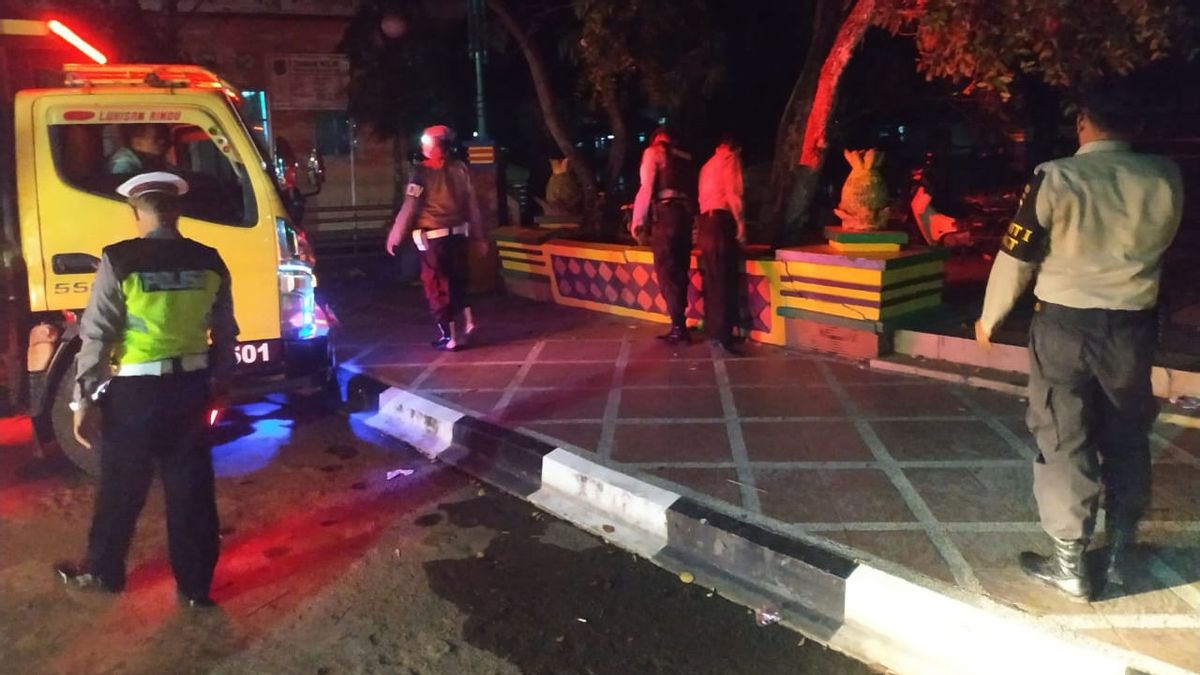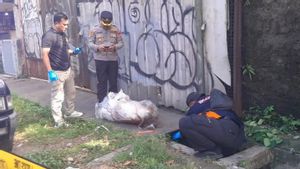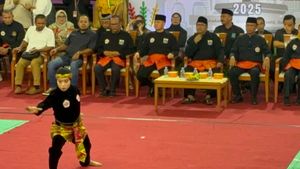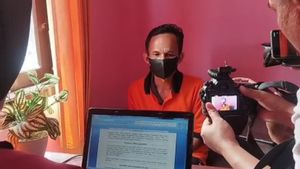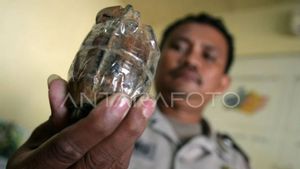JAKARTA - The National Police has disclosed data on the prosecution of those who were still congregating during the COVID-19 pandemic. Based on data, East Java is the area with the most prosecution.
Karo Penmas DivHumas Polri Brig. Gen. Argo Yuwono said that about three thousand people were prosecuted after the Chief of Police's announcement was enacted. They were asked to make a statement so that they would not repeat their actions.
"In East Java, there were dissolution activities in several locations, but because they were still annoyed, we took them to the police station. There are around 3000 people," said Argo at Graha BNPB, Jakarta, Monday, April 6.
Then, another area that has started to take firm action, namely, DKI Jakarta. About 18 people were named as suspects for resisting or refusing when officers dispersed them. Even though they were named suspects, continued Argo, they were not detained and only had the status of house arrest.
If you refer to existing data, as many as 10,873 crowds have been dispersed during the COVID-19 pandemic. This means that the Police will not play games with these actions aimed at breaking the chain of distribution.
Crowd-related action, he said, would be accompanied by the delivery of information and education about the dangers of the spread of COVID-19. The officers will continue to advise the public not to leave the house. Furthermore, from the existing data, it is also stated that the National Police has taken action against dozens of cases of hoax spreading related to COVID-19 throughout Indonesia.
"Then there are also 76 cases of hoaxes. We have handled 76 cases of hoaxes. Most cases of hoaxes disclosed were in Polda Metro Jaya with 11 cases and Polda East Java 11 cases," said Argo.
Previously reported, the government issued an appeal for large-scale social restrictions to deal with the corona virus pandemic or COVID-19. The National Police will act decisively for people who cannot carry out this policy.
National Police Chief General Idham Azis said there were a number of articles to ensnare those who did not heed this government's policy.
For those who gather, they are charged with Article 14 paragraph 1 and 2 of Law Number 4 of 1984 concerning Disease Outbreaks and Article 93 of Law Number 6 of 2018 concerning Health Quarantine. The public is also asked to do activities in the house in accordance with Articles 212, 214 paragraphs 1 and 2, as well as Articles 216 and 218 of the Criminal Code.
"Regarding criminal sanctions against people who violate government policies in the emergency period of the COVID-19 pandemic, such as not wanting to be disbanded when crowding, holding crowds after being ordered by officers, threats (articles) that can be imposed (on the community)," said Idham in a joint commission meeting. III DPR RI via video teleconference, Tuesday, March 31.
Referring to paragraphs 1 and 2 in Article 14 of Law Number 4 of 1984 concerning disease outbreaks, those who violate will be imprisoned for a maximum of one year and a fine of one million rupiah.
Meanwhile, heavier sanctions are stated in Article 93 of Law Number 6 of 2018 concerning Health Quarantine. Those who violate will be jailed for one year and or a fine of one hundred million rupiah. Meanwhile, Articles 212, 214 paragraphs 1 and 2, as well as Articles 216, and 218 of the Criminal Code, will only be applied to people who are stubborn if they fight back against police officers.
The English, Chinese, Japanese, Arabic, and French versions are automatically generated by the AI. So there may still be inaccuracies in translating, please always see Indonesian as our main language. (system supported by DigitalSiber.id)
